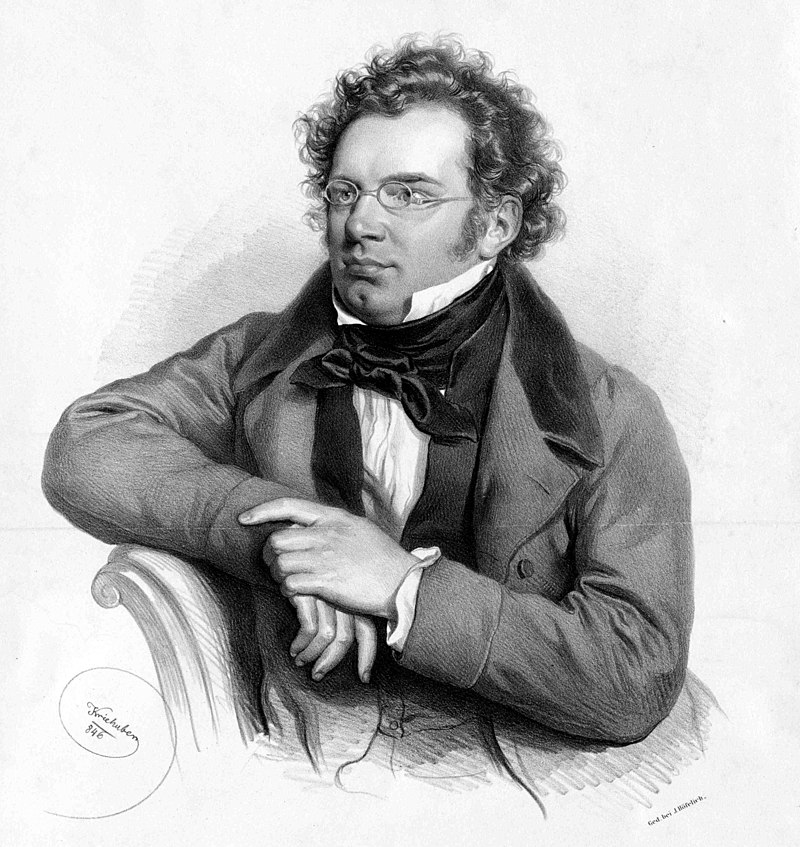Paul Lewis, Wigmore Hall review - superlative Schubert | reviews, news & interviews
Paul Lewis, Wigmore Hall review - superlative Schubert
Paul Lewis, Wigmore Hall review - superlative Schubert
Large-scale, committed accounts do full justice to complex emotional worlds

Paul Lewis secured his reputation as a leading advocate of the Viennese Classical repertoire with two releases of late Schubert sonatas on Harmonia Mundi. That was 20 years ago, but he returned to Schubert in 2022, with a release of earlier sonatas, music that requires more interpretive personality, something that Lewis can always provide.
For these Wigmore recitals (this the first, the same programme is being repeated on 1 May), Lewis presents two of the late sonatas, D840 "Reliquie" and D845, plus one of the earlier works on his new album, D664. The results are as fine as ever, without any great deviation from his recorded accounts, but with plenty of immediacy and well-gauged emotional power.
 The "Reliquie" Sonata is incomplete, giving a feeling of open-endedness that the pianist must counter by presenting each of its two movements as a definite and self-sufficient statement. Lewis achieves this, here and in the other two sonatas, by presenting the opening themes with disarming simplicity, and then gradually increasing the emotional tension, before returning with a sense of deliberate naivete to the final thematic statements. The Wigmore Steinway resonates broadly in the hall’s acoustic under Lewis’s clear, precise touch. He fosters a plump, rich bass tone, well supporting the melodic lines. And when the mood grows turbulent, as in the second movement of the "Reliquie", the bass takes on a sinister, dark colouring.
The "Reliquie" Sonata is incomplete, giving a feeling of open-endedness that the pianist must counter by presenting each of its two movements as a definite and self-sufficient statement. Lewis achieves this, here and in the other two sonatas, by presenting the opening themes with disarming simplicity, and then gradually increasing the emotional tension, before returning with a sense of deliberate naivete to the final thematic statements. The Wigmore Steinway resonates broadly in the hall’s acoustic under Lewis’s clear, precise touch. He fosters a plump, rich bass tone, well supporting the melodic lines. And when the mood grows turbulent, as in the second movement of the "Reliquie", the bass takes on a sinister, dark colouring.
D664, in A Major, begins in a more bucolic mood, which Lewis presents directly, well sustaining the innocent mood, even if Schubert lingers here longer than we might expect. The development, too, is lower on drama than in the late sonatas, but Lewis brings this music to life with energetic and impulsive bass runs. The Andante second movement relies on simple chordal textures, which again succeed largely due to Lewis’s weighty but clear voicing of the bass. In the finale, Schubert employs rhetorical devices: question and answer volleys, and short repeating phrases. Lewis finds musical justification for all these, bringing an intimate, conversational quality to the music.
The second half was devoted to the more turbulent A-Minor, D845. The opening is again light, but the composer’s inner turmoil soon raises to the surface. Often in the first movement, impulsive outbursts disrupt otherwise straightforward melodic statements, and Lewis always maintains the element of surprise. The second movement, Andante poco moto, begins so lightly as to sound ironic, but gradually descends into darker realms. That gradual transformation is beautifully judged by Lewis, as are the darker textures, weighty but cleanly articulated. The third-movement Scherzo is light but punchy under Lewis’s fingers, the simple rhythms made more erratic through some daring rubato. And the finale was suitably intense. Schubert bases the movement on a short, repeating motif, more insistent at each return. Against this, the music continually reverts to a more lyrical style. Lewis plays this out as a battle against fate, the lyrical passages becoming increasingly desperate and futile as the percussive style comes to dominate at the climax. Here, and throughout the recital, Lewis presents big, muscular Schubert but continually demonstrates that this scale is wholly appropriate for the emotional depth and complexity of the music.
rating
Explore topics
Share this article
The future of Arts Journalism
You can stop theartsdesk.com closing!
We urgently need financing to survive. Our fundraising drive has thus far raised £49,000 but we need to reach £100,000 or we will be forced to close. Please contribute here: https://gofund.me/c3f6033d
And if you can forward this information to anyone who might assist, we’d be grateful.

Subscribe to theartsdesk.com
Thank you for continuing to read our work on theartsdesk.com. For unlimited access to every article in its entirety, including our archive of more than 15,000 pieces, we're asking for £5 per month or £40 per year. We feel it's a very good deal, and hope you do too.
To take a subscription now simply click here.
And if you're looking for that extra gift for a friend or family member, why not treat them to a theartsdesk.com gift subscription?
more Classical music
 Kempf, Brno Philharmonic, Davies, Bridgewater Hall, Manchester review - European tradition meets American jazz
Bouncing Czechs enjoy their Gershwin and Brubeck alongside Janáček and Dvořák
Kempf, Brno Philharmonic, Davies, Bridgewater Hall, Manchester review - European tradition meets American jazz
Bouncing Czechs enjoy their Gershwin and Brubeck alongside Janáček and Dvořák
 Solomon, OAE, Butt, QEH review - daft Biblical whitewashing with great choruses
Even a top soprano and mezzo can’t make this Handel paean wholly convincing
Solomon, OAE, Butt, QEH review - daft Biblical whitewashing with great choruses
Even a top soprano and mezzo can’t make this Handel paean wholly convincing
 Two-Piano Gala, Kings Place review - shining constellations
London Piano Festival curators and illustrious friends entertain and enlighten
Two-Piano Gala, Kings Place review - shining constellations
London Piano Festival curators and illustrious friends entertain and enlighten
 Echo Vocal Ensemble, Latto, Union Chapel review - eclectic choral programme garlanded with dance
Beautiful singing at the heart of an imaginative and stylistically varied concert
Echo Vocal Ensemble, Latto, Union Chapel review - eclectic choral programme garlanded with dance
Beautiful singing at the heart of an imaginative and stylistically varied concert
 Scott, Irish Baroque Orchestra, Whelan, RIAM, Dublin review - towards a Mozart masterpiece
Characteristic joy and enlightenment from this team, but a valveless horn brings problems
Scott, Irish Baroque Orchestra, Whelan, RIAM, Dublin review - towards a Mozart masterpiece
Characteristic joy and enlightenment from this team, but a valveless horn brings problems
 Classical CDs: Voice flutes, flugelhorns and froth
Baroque sonatas, English orchestral music and an emotionally-charged vocal recital
Classical CDs: Voice flutes, flugelhorns and froth
Baroque sonatas, English orchestral music and an emotionally-charged vocal recital
 Kanneh-Mason, Britten Sinfonia, Shave, Milton Court - a grin and a big beaming smile
A pair of striking contemporary pieces alongside two old favourites
Kanneh-Mason, Britten Sinfonia, Shave, Milton Court - a grin and a big beaming smile
A pair of striking contemporary pieces alongside two old favourites
 theartsdesk at the New Ross Piano Festival - Finghin Collins’ musical rainbow
From revelatory Bach played with astounding maturity by a 22 year old to four-hand jazz
theartsdesk at the New Ross Piano Festival - Finghin Collins’ musical rainbow
From revelatory Bach played with astounding maturity by a 22 year old to four-hand jazz
 First Person: Manchester Camerata's Head of Artistic Planning Clara Marshall Cawley on questioning the status quo
Five days of free events with all sorts of audiences around Manchester starts tomorrow
First Person: Manchester Camerata's Head of Artistic Planning Clara Marshall Cawley on questioning the status quo
Five days of free events with all sorts of audiences around Manchester starts tomorrow
 Goldscheider, Brother Tree Sound, Kings Place review - music of hope from a young composer
Unusual combination of horn, strings and electronics makes for some intriguing listening
Goldscheider, Brother Tree Sound, Kings Place review - music of hope from a young composer
Unusual combination of horn, strings and electronics makes for some intriguing listening

Add comment